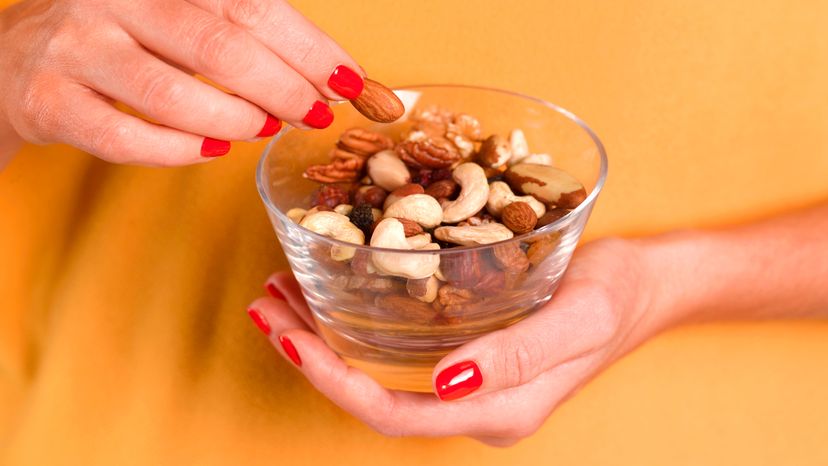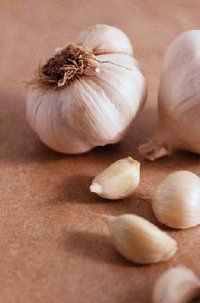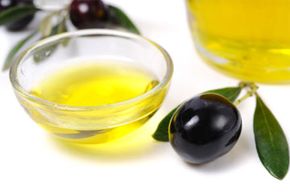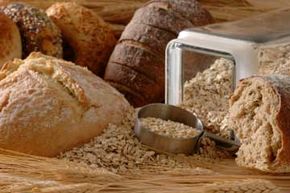Dietary fiber is found exclusively in plant foods. It serves as the structural framework in plants and is one of the most abundant compounds in nature. Fiber is the part of the plant that is not broken down in the intestines by human digestive enzymes. Because it is not digested, fiber is not absorbed in the body. (Bacteria in the intestines can ferment soluble fiber, changing it to short-chain fatty acids that are absorbed, but in general, fiber itself is neither digested nor absorbed.)
Fruits, vegetables, whole-grain breads and cereals, nuts, and legumes (such as dried beans, lentils, and peas) are all sources of fiber in the diet. Fiber is beneficial for a number of reasons. It helps improve intestinal health, prevents heart disease and some cancers, reduces blood pressure, regulates blood sugar, and aids in weight control.
Fiber can be either insoluble or soluble, although most fiber-containing foods have both. Insoluble fiber speeds up the movement of food through the intestines and promotes regularity. It is excreted largely intact. Insoluble fiber can be found in whole-grain foods, wheat bran, many vegetables, and fruit with skin. Soluble fiber -- also called viscous fiber -- dissolves when mixed with water and becomes a gel-like substance, slowing down the movement of food through the small intestine. Sources of soluble fiber include oats, peas, beans, apples, and citrus fruits; one serving of any of these foods provides about one to three grams (g) of soluble fiber.
Evidence suggests that soluble fiber is more effective at lowering cholesterol, but both types of fiber are important for your health. One of the ways soluble fiber may lower blood cholesterol is through its ability to reduce the amount of bile reabsorbed in the intestines. It works like this: When fiber interferes with absorption of bile in the intestines, the bile is excreted in the feces. To make up for this loss of bile, the liver makes more bile salts. The body uses cholesterol to make bile salts. So in order to obtain the cholesterol necessary to make more bile salts, the liver increases its production of LDL receptors.
These receptors are responsible for pulling cholesterol out of LDL molecules in the bloodstream. Therefore, the more bile salts are made from the liver, the more LDL cholesterol is pulled from the blood. There is more to be learned about the relationship between soluble fiber and cholesterol, however. It is also possible that one of the short-chain fatty acids produced by the fermentation of soluble fiber in the large intestines may inhibit the amount of cholesterol produced by the liver.
Research has shown that increasing soluble fiber by 5 to 10 g a day reduces LDL cholesterol by about five percent. Oat bran and oatmeal, as well as psyllium and barley, are rich in beta-glucan, a soluble form of fiber, which has been shown to lower total cholesterol and LDL cholesterol.
Evidence suggests that more than 11 g of beta-glucan from oats can lower cholesterol up to 14.5 percent. (In one study, 3 g of beta-glucan was equivalent to about 2.5 ounces of oat bran.) In fact, according to the Food and Drug Administration (FDA), foods such as whole oats and barley that contain at least 0.75 g of beta-glucan soluble fiber per serving can state on their label that they may reduce the risk of heart disease, along with a diet low in saturated fat and cholesterol.
The National Cholesterol Education Program (NCEP) suggests that people adhering to the therapeutic lifestyle changes (TLC) program -- a diet and exercise program designed to lower cholesterol -- get at least 5 to 10 g of soluble fiber a day, but 10 to 25 g of soluble fiber is recommended to lower LDL cholesterol even more.
The National Academy of Sciences recommends that men and women get even more fiber: up to age 50, men should get 38 g and women 25 g of total fiber -- meaning insoluble and soluble fiber -- each day, and men age 50 and older should get 30 g and women 21 g each day. However, Americans are only getting about 15 g of fiber each day. Diets rich in fat, such as the typical American diet, are generally low in fiber because the most common sources of dietary fat -- foods of animal origin or commercially prepared baked goods -- contribute little or no fiber to the diet.
The best way to increase fiber in the diet is to eat more fruits, vegetables, whole grains, and legumes. Incorporating high-fiber foods into recipes -- for example, adding beans to soup or oats to muffins -- also helps to increase the amount of fiber in the diet.
Fiber supplements can be purchased, but because they are concentrated forms of fiber, it's best to start slow. Switching from a low-fiber to a high-fiber diet should be done gradually to avoid diarrhea, gas, and other types of stomach and intestinal discomfort. Although it's possible that very high intakes of fiber -- at levels associated with the use of supplements -- may reduce the body's ability to absorb certain minerals, it generally should not be a concern if the daily diet includes a variety of nutritious foods.
Another food that has natural cholesterol-lowering properties is fish. Read on to learn why fish and fish oils can be a healthy addition to any diet.




